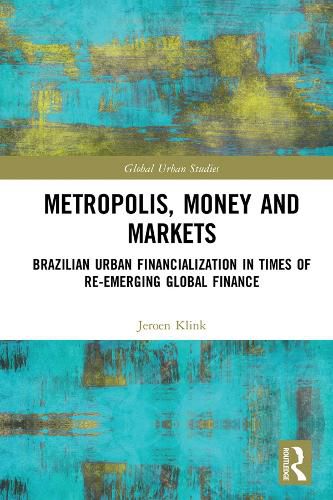Readings Newsletter
Become a Readings Member to make your shopping experience even easier.
Sign in or sign up for free!
You’re not far away from qualifying for FREE standard shipping within Australia
You’ve qualified for FREE standard shipping within Australia
The cart is loading…






This book explores the impact of finance on urban spaces as well as cities’ role in the social constitution and dissemination of financial logistics and techniques. It brings together literature from different disciplinary areas to increase our understanding of financialization.
It observes how non-financial members of society, such as public bureaucrats, urban planners, the media and so on, are actively involved in the financialization of urban areas. With an explicit focus on Brazil, a developing country in the Global South, the book demonstrates how the country has been grappling with complex and contradictory processes of neoliberalization, decentralization, re-democratization and institutional-legal strengthening of frameworks for urban and regional planning, stressing the relations between urban space and finance capital.
With a distinct view of filling a gap in the current literature on urban financialization, the book aims to focus on less developed areas in this field and link them with the literature on social studies of finance. This makes the text relevant for academics and scholars of urban studies and planning theory, geography, development studies and political economy, as well as scholars in the US and Europe interested in understanding Brazilian patterns of financialization.
$9.00 standard shipping within Australia
FREE standard shipping within Australia for orders over $100.00
Express & International shipping calculated at checkout
This book explores the impact of finance on urban spaces as well as cities’ role in the social constitution and dissemination of financial logistics and techniques. It brings together literature from different disciplinary areas to increase our understanding of financialization.
It observes how non-financial members of society, such as public bureaucrats, urban planners, the media and so on, are actively involved in the financialization of urban areas. With an explicit focus on Brazil, a developing country in the Global South, the book demonstrates how the country has been grappling with complex and contradictory processes of neoliberalization, decentralization, re-democratization and institutional-legal strengthening of frameworks for urban and regional planning, stressing the relations between urban space and finance capital.
With a distinct view of filling a gap in the current literature on urban financialization, the book aims to focus on less developed areas in this field and link them with the literature on social studies of finance. This makes the text relevant for academics and scholars of urban studies and planning theory, geography, development studies and political economy, as well as scholars in the US and Europe interested in understanding Brazilian patterns of financialization.